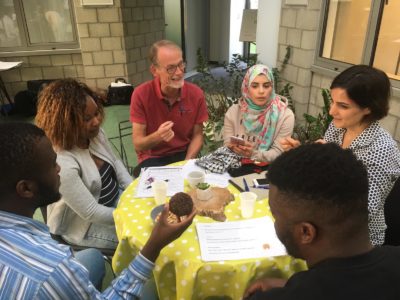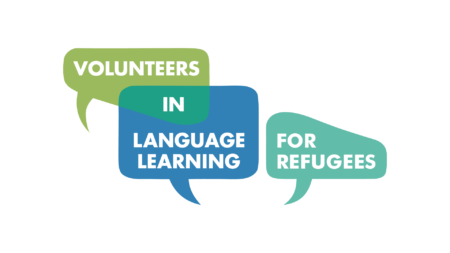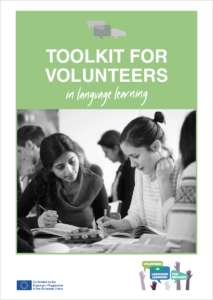I am Not a Teacher

How can I really be of any help?
Nobody expects a volunteer to act like a teacher and to explain grammar rules etc. Even without a broad knowledge of language learning you can still definitely support refugee language learners. The interpersonal and attitudinal qualities outlined in the first section of this toolkit (see section 1.4 Toolkit for Volunteers) are more important than language know-how.
Here we outline some of the many ways that volunteers can support the language learning process:
Volunteers can offer an experience of authentic communication
Volunteers have a lot to offer just by sharing their own life experiences and interests with learners. If there is a connection between these experiences and learners’ interests this will make communication in the target language more appealing. Learners may forget their self consciousness because they genuinely want to communicate, which is very beneficial to learning. Topics like jobs, hobbies, school and family often provide fertile territory for finding things in common and for connecting.
Volunteers give more opportunities for speaking
The more learners can practise speaking, the more they’ll be at ease in the language they’re learning. Working with volunteers, inside or outside the classroom, gives students more opportunities to practise ‘producing’ (speaking or writing) the language. Volunteers encourage the learners to speak, listen to them and give them feedback.
Volunteers can give feedback and corrections
Volunteers can give feedback by being honest about when they understand or don’t understand students. They can also answer learners’ requests for help with spelling or other corrections.
Volunteers can help create a safe environment
People generally learn best when they feel safe, comfortable and supported by their environment and the people around them. Volunteers can help create a positive, supportive atmosphere with warmth, encouragement, friendliness and positive feedback to learners. (Cross reference: 2.5 Safer Space).
Volunteers can help learning through repetition
If you are volunteering in a classroom setting or the person you are supporting attends a language course, it might make sense to repeat content from this course. Repetition and practice is essential. You don’t have to explain (new) grammar to the learner, you can just ask them to explain what they have learnt on the course.
Volunteers can help with pronunciation
You can support learners with the right pronunciation through your example and with feedback. (Cross reference to Error correction and Feedback.)
Do you want to learn more?
Download the entire article as PDF file
"Every volunteer brings a slightly new dialect into the classroom. That is hard to understand sometimes, but that is in the end what we need to learn. The difference to the life out there is that the volunteers are much more patient with me."
Language Learner, Denmark

